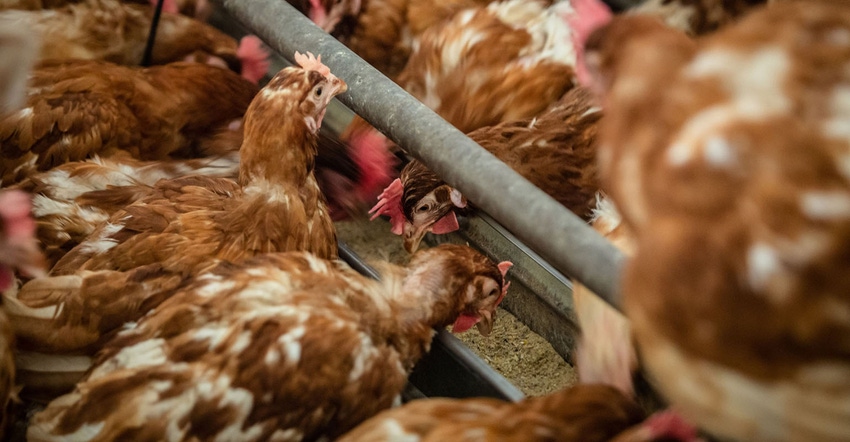
By Bob Van Voris
The U.S.’s top antitrust enforcer, who flew from Washington to Denver at the behest of a skeptical judge, struggled to convince the court that the Justice Department will be successful in its third trial over charges of collusion in the chicken industry.
“We know that the evidence couldn’t persuade 12 people,” U.S. District Judge Philip Brimmer said at a contentious hearing Thursday, referring to previous mistrials in the case. “We’ve seen it happen twice.”
Jonathan Kanter, head of the U.S. Justice Department’s antitrust division, insisted that the government’s case this time around will be stronger because it will focus on just five of the executives rather than 10. Prosecutors dismissed charges against five of the defendants last month.
“We still have every bit of confidence that we did when we charged the case that it will result in convictions,” said Kanter, who is based in Washington and supervises the government lawyers who tried the case.
In 2020, the U.S. charged 10 men from companies including Tyson Foods Inc., Pilgrim’s Pride Corp. and Perdue Farms LLC with fixing prices and rigging bids in the $95 billion chicken market. But after two trials that each lasted weeks, the juries were deadlocked.
After the last mistrial, Brimmer summoned Kanter to Denver to look him in the eye and explain the decision to keep prosecuting the case.
At the hearing Thursday, the judge repeatedly asked Kanter why he thinks the result of a third trial will be different. He also quizzed Kanter about a Justice Department policy requiring prosecutors to go forward with cases only if they believe the evidence will “probably” result in a conviction. But Brimmer said he doesn’t have the authority to require prosecutors to follow the standard.
The judge concluded the hearing by urging Kanter to “go back to Washington and think about that.”
For now, prosecutors are planning for another trial.
Kanter, President Joe Biden’s antitrust chief, is seeking to reverse decades of lax enforcement that he believes has allowed companies to dominate industries and block competition. Biden has called out the lack of competition among U.S. meatpackers, and the companies are under increased scrutiny as higher beef, pork and poultry prices spur inflation.
A third mistrial or acquittals for the executives accused of an eight-year conspiracy to fix chicken prices would be a serious blow to the government’s efforts to use criminal prosecutions to police competition among food producers.
After dismissing charges against some of the defendants “to streamline the case and conserve the resources of the Court, the parties, and the public,” the government will go forward with a trial against former Pilgrim’s Pride chief executive officers Jayson Penn and William Lovette. Also to be tried are Roger Austin, a former Pilgrim’s vice president; Mikell Fries, president of Claxton Poultry, and Scott Brady, a Claxton vice president.
The men are each charged with conspiring to fix prices and rig bids from 2012 to early 2019. If convicted, they face prison time and fines.
Skeptical Jurors
Prosecutors face significant challenges, based on their past failures in the case.
In the first trial, jurors reported a split of eight votes to convict, four to acquit Penn, Fries, Brady and Austin. They divided on Lovette with five guilty votes and seven not guilty. Four of the defendants dropped from the case got only three votes to convict.
While jury votes weren’t disclosed after the second trial, one of the jurors, Grace Carroll, said she doubts a third jury will be able to reach a verdict. Carroll, a preschool teacher who lives outside Denver, said she was one of a group of five who thought all 10 defendants were not guilty.
“There just wasn’t anything in the evidence,” she said.
One juror was convinced all were guilty, making a deadlock inevitable, she said. Carroll said the remaining jurors fell somewhere between those two positions.
Same Witness
A third trial will likely mean a repeat of testimony from the government’s star witness, Robert Bryant, a longtime Pilgrim’s Pride employee who’s currently on leave. Bryant twice faced former coworkers and business contacts in Brimmer’s courtroom, testifying about an industry-wide agreement to share price and bid information to inflate profits or limit losses.
Bryant, who took the witness stand under a grant of immunity from prosecution, admitted that he had lied to the FBI “multiple times” on matters unrelated to the price-fixing probe. The subject of the lies wasn’t disclosed publicly.
Tyson, the largest U.S. producer, cooperated in the federal probe, taking advantage of a government policy to grant leniency to companies that are the first to disclose illegal price-fixing. Greeley, Colorado-based Pilgrim’s Pride, a unit of Brazilian food giant JBS SA, pleaded guilty to a price-fixing conspiracy last year and was sentenced to pay $108 million in fines.
The case is U.S. v. Penn, 20-cr-00152, U.S. District Court, District of Colorado (Denver).
© 2022 Bloomberg L.P.
About the Author(s)
You May Also Like




